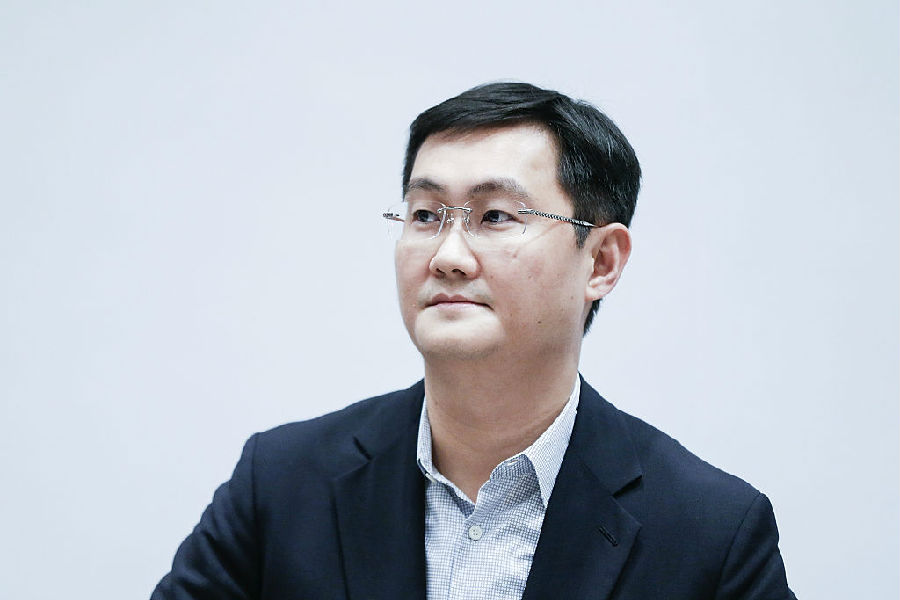Tencent has grown into a company with a stock market capitalisation of $470bn by building a social media platform that combines messaging, payments and other apps. Now it is taking a step into the world of YouTube, earmarking billions of dollars to amass a catalogue of user-generated content.
腾讯(Tencent)通过打造一个集消息、支付等多种应用于一体的社交媒体平台,已经成长为一家拥有4700亿美元股票市值的公司。如今,腾讯正在向YouTube所在的领域进军,专门拨出重金用于汇聚“用户原创内容”。
The move follows a period of rampant professional content acquisition, spanning streaming rights to the US National Basketball Association to music from major record labels. Content is a key tool for keeping users within Tencent platforms but the current big-ticket purchases “just aren’t economic”, says one analyst.
腾讯也曾大肆购买专业内容——从美国男子职业篮球联赛(NBA)的网络直播权到主流唱片公司的音乐。一位分析师表示,内容是吸引用户留在腾讯旗下各种平台内的一个关键工具,但是目前的大手笔购买“并不划算”。
The push into user content, which Tencent calls “open media”, comes as the group flagged its lossmaking, but strategically important, video offerings when it unveiled third-quarter results on Wednesday that blew through analysts’ expectations. Net profits rose 67 per cent year on year to Rmb18.05bn ($2.72bn) on the back of a 61 per cent jump in revenues to Rmb65.2bn ($9.8bn).
腾讯宣布进军用户原创内容(腾讯称之为“内容开放平台”)之际,该集团在周三公布第三季度财报时强调了虽然亏损但具有战略重要性的视频业务。腾讯第三季度业绩超出分析师预期,收入同比大增61%,至652亿元人民币(合98亿美元),净利润则增长67%,至180.5亿元人民币(合27.2亿美元)。
Mark Ren, Tencent’s chief operating officer, told app developers at the company’s annual conference this month that it had invested “a lot of time and money into open media and we predict next year we will invest Rmb10bn in this ecosystem”.
腾讯首席运营官任宇昕(Mark Ren)在本月举行的2017腾讯全球合作伙伴大会上对APP开发者们表示,该公司已经向内容开放平台投入了大量时间和资金,预计明年将向这一生态系统投入100亿元人民币。
The company says it will distribute the content across all of its platforms, handing wannabe stars potential exposure to WeChat’s 963m monthly active users — half of whom spent more than 90 minutes on the app every day.
腾讯表示,将在旗下所有平台分发内容,有志成为网红的创作者将有机会让微信(Wechat)的9.63亿月度活跃用户(其中半数每天使用微信的时间超过90分钟)看到他们的内容。
Tencent is also promising to protect their copyright, in an attempt to provide another attraction to would-be internet stars.
腾讯还承诺保护他们的版权,从另一个方面吸引想要成为“网红”的内容发布者。
Backing up these pledges is the so-called “3 x 10bn plan”, whereby Tencent will invest Rmb10bn a year in revenue sharing with content creators and devote a further Rmb10bn into resources such as start-up spaces and providing intellectual property protection. The third Rmb10bn relates to the traffic Tencent says it controls by counting the same user multiple times across platforms.
支撑这些承诺的是所谓的“三个百亿计划”,即腾讯将以“100亿流量、100亿产业资源和100亿元资金”扶植内容创业者。
The pledges underline the lengths China’s biggest tech groups are going to in the land-grab for content. In August, news feed app Toutiao poached 300 internet celebrities from Zhihu, an online question-and-answer forum similar to Quora. According to one microblogger who made the switch, they were signed “at a compensation higher than that of an average white-collar worker”.
这些承诺突显了中国各大科技集团在争夺内容方面都使出了浑身解数。今年8月,新闻推送应用今日头条(Toutiao)从类似Quora的在线问答论坛知乎(Zhihu)挖走了300名网络大V。一位转投今日头条的原知乎大V表示,他们签约今日头条的年收入比普通白领高。
User-generated content is important, says Matthew Brennan, analyst and co-founder of China Channel site, which trains companies to use WeChat. “Each of the big players is trying to say ‘Come to us and we will provide you with ways to get traffic and monetise it, and sometimes pay you directly as well’.”
China Channel是一个为企业提供微信使用培训的网站,其分析师兼联合创始人马修?布伦南(Matthew Brennan)表示,用户原创内容非常重要。“各大平台都在传递这样的信息,‘来我们这儿吧,我们会为你提供获取流量和变现的途径,有时候还直接付给你钱。’”
For Tencent, a company whose tech roots are defined by Pony Ma, its engineer founder and chief executive, the move marks an inflection point. Its user base is enormous but its heavily domestic slant is seen by some as approaching saturation.
新动作标志着腾讯走到了一个拐点。该公司的技术基础是由其工程师出身的创始人兼首席执行官马化腾(Pony Ma)勾画出来的。腾讯有庞大用户基础,但明显偏重国内,因此一些人认为其市场正接近饱和。
“The mobile ecosystem in China is quite mature, so the products are all kind of similar,” says Mr Brennan. “What differentiates them now is content, so that’s the way to attract customers from your competitors.”
布伦南说:“中国的移动生态系统已经相当成熟,所以产品也都相似。现在能把它们区别开的是内容,要从竞争对手那里吸引用户就得从这里下手。”
Lin Songtao, Tencent’s vice-president said at last week’s conference that what was once an activity — such as shopping or gaming — is now something to watch others doing.
腾讯副总裁林松涛在上周的会议上表示有些事在过去只是自己的活动,比如购物和打游戏,现在却能看着别人做。
“Watching people playing games was boring, but now people like to see how people play games,” he said, pointing to the growth of esports and online gaming tournaments. “It’s content of games, not games per se.
他说:“在过去几年我们很难想象有人看别人打游戏也会一直高兴,这很无聊。今天很多人休闲的时候特别喜欢看游戏主播打游戏。”他指的是电子竞技和网游锦标赛。
“Figures in July showed consumer behaviour has changed,” he added. “Today, ecommerce content-based consumption is growing rapidly. Consumers want more information behind products.”
他还表示今年7月份的数据表明消费者的行为已经发生了变化,他说:“现在内容电商的模式增长非常快。越来越多的用户不满足你告诉我,这个是什么东西?你是不是有精美的图片?而是背后有故事才能吸引我的购买。”
YouTube and Facebook have already made big pushes into monetising user-generated content. The Google-owned video network pays influencers to make longer content especially for its subscription service YouTubeRed.
YouTube和Facebook已经在大力推动用户原创内容的货币化。谷歌自有视频网络开始付费请有影响力的用户制作较长的视频,重点提供给其订阅服务YouTubeRed。

Facebook recently launched Watch, a video tab within the site, and is paying some users to create entertainment videos.
Facebook最近在网站推出了“Watch”(观看)视频标签,并且付费给一些用户制作娱乐视频。
Tencent hopes to woo YouTubers, setting up a studio in Hong Kong kitted out with dubbing and post-production facilities to enable US and other overseas celebrities to access the Chinese market.
腾讯希望能吸引YouTube主播,该公司在香港成立了一间工作室,有配音和后期制作设施,旨在帮助美国和其他海外名人进入中国市场。
The company hopes attracting them on to its platforms will help keep users within its ecosystem for longer, adding up to bigger revenue streams.
腾讯希望通过将这些人吸引到其平台上,从而帮助将用户更长久地留在其生态系统内,增加收入来源。
“Once our partners become dynamic we are automatically the beneficiary,” said Elaine Wang, vice-general manager of Tencent’s open platform. “That’s the logic.”
腾讯开放平台副总经理王兰(Elaine Wang)表示:“一旦我们的合作伙伴变得活跃,我们就自然会受益。这是顺理成章的。”













